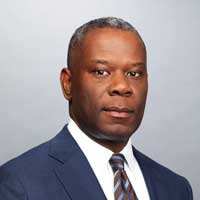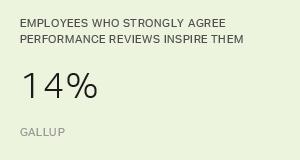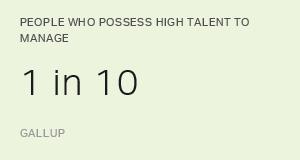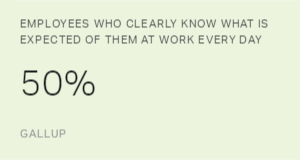
A Conversation With Darryl Robinson
EVP and Chief Human Resource Officer for Dignity Health
Recently, Darryl Robinson, EVP and Chief Human Resource Officer for Dignity Health, spoke about his innovative approach to see HR as an agent of revenue to help underwrite the HR function. In this conversation, Robinson explains how Dignity teaches its hard-won HR expertise to other hospitals to make HR bring in revenue to be an increasingly effective part of the Dignity ministry.
Emond: Tell me a little bit about Dignity Health as an organization. You're not a typical healthcare system.
Robinson: We are a faith-based organization, founded many years ago by "women religious" who came to this country to serve. Initially, they came to the U.S. to spread the gospel and the ministry of Jesus Christ. But when they arrived here, they encountered issues such as poverty, disease and other public health issues -- circumstances that they hadn't really expected. Instead of retreating, they redirected their efforts to meet the needs of the community at hand.
In many ways, that describes Dignity Health today. Our organization comes from a lineage of women representing several sponsoring congregations. In 1986, they bound together to become Catholic Healthcare West. From then, until now, our ministry has evolved to become one of the largest providers on the West Coast.
A substantial portion of our patients are covered by Medicare and Medicaid. We proudly serve them despite declining reimbursement. We uphold a commitment to the communities we serve to provide quality, affordable care. We do this to strengthen our communities and provide a sense of humanity to people who need it so much.
Emond: So, in your environment, in addition to your other operating systems, you need to make sure HR functions as efficiently as it possibly can. How are you doing that?
Robinson: You know, our values are really pivotal to our ministry: dignity, justice, collaboration, stewardship and excellence. We work hard to apply the same standard to everyone, no matter where they work. It's very important to us.
When I joined in 2013, our HR transformation was underway across our primary markets in California, Arizona and Nevada. Our ministry has 40 acute care hospitals and they were all doing things differently. Essentially, there were 40 different ways -- 40 different hiring processes, 40 different compensation processes, 40 different ways of learning, and so on.
That's just what you encounter as a result of bringing these affiliated organizations together, and that's fine. But you can imagine the synergies associated with bringing things together into alignment. The HR team started to look at this in 2012, and our strategy was to create a sound HR standard and encourage people to migrate to it, and then we enhanced the standard.
So, as an example, we migrated to one single offer letter and then we enhanced the quality of the offer letter. We migrated to one single learning management system and then we enhanced the LMS offering. We did the same thing for compensation, performance management, education, onboarding, orientation programs and employee engagement.
We needed a strategy that put people first and framed our ministry too. That revolved around five things. We needed to attract great people. Then once we attracted them, we needed to hire them. And then once we hired them, we needed to manage them very well. I always say that having a great manager makes coming to work a whole lot easier. Next, we have to help people develop and grow. Because if we don't help them develop and grow at Dignity Health, they will develop and grow somewhere else. Finally, we have to retain the great people that we've hired and developed.
It's been very successful, not because of what I did, but because of what the entire HR team did, in conjunction with our operations leadership. It's really a team effort.
Emond: Now, the last time we talked you mentioned that you're actually finding revenue from outside the organization that can support the HR function. Tell me about that.
Robinson: Back in late 2015/early 2016, we were challenged from a budgeting standpoint, just like everybody else, to become more efficient. How do you enhance your service offering and productivity? I started to think, perhaps there's a way in which we can change this paradigm of every year having to ask, "Can I grow by x amount? Can I get 3%? Can I get 5%?"
My thought was, if we can monetize portions of human resources, then we can bring revenue into our particular function and HR can self-fund some of our initiatives. The more we're able to grow external services revenue, the more we're able to fund.
So I said let's start with learning. Then let's go to compensation practices. Let's make full use of our highly functioning HR service center that we have built. And then let's see if we can leverage our labor relations expertise. I knew it would take a couple of years or so to get there, but I envision a day when our HR team no longer asks for a budget increase, because our HR community has funded itself.
But let me tell you, first and foremost, this vision is not possible if you don't have the right clay to work with. The quality of the people that you put into HR leadership roles allows you to infuse change into the organization. We have that excellence at Dignity Health. Secondly, we bring in about 8,000 people externally a year and we fill between 16,000 to 18,000 positions annually.
If you have people who are not change-agile, that's a problem. Every day, we work diligently to hire people who are highly skilled and values-based. We want to gather the highest caliber of available people who are committed to our mission on a sustained basis, and those individuals have to be interested in learning and developing their skills not just for Dignity Health, but to serve our patients more extensively.
Remember, excellence and collaboration are two of our core values. And we thought, maybe small- or medium-sized healthcare organizations might be able to benefit from the things we have learned through the years.
For instance, our first program is going on right now with a group of senior healthcare executives from Saudi Arabia who are in Phoenix, Arizona, doing an 18-week learning program that involves clinical leadership assessments of themselves, shadowing, coaching, the whole nine yards.
Emond: I believe you're also working on digitizing nurse training and making that available to small- and mid-sized healthcare systems too, right?
Robinson: That's one of the things that we're working on right now so I can't say we have that all put together, not yet. But we feel like we can offer education in relation to operations capability, what we do on service line excellence, what we're doing on quality. We can offer it in a standalone, instructor-led type of an environment. And, if we can offer it on a digitized basis, our reach is so much greater, right? We want to walk before we run, but we're getting there.
Emond: And on top of that, you're talking about a merger with Catholic Health Initiatives, right?
Robinson: Yes. And, there is a lot of work ahead to bring our two ministries together. But as we do that, we're going to learn about the expertise that exists in these two organizations. We're going to learn about the thousands of top-notch people who work for the benefit of others.
Emond: You're about 63,000 employees and they're over 100,000 employees, is that right? With $27 billion to $28 billion in revenue.
Robinson: Right, so we're going to have to align and integrate payroll, supply chain, IT, revenue cycle, finance, HR, marketing -- you name it. How it comes together is through one of our values, collaboration, which is a big part of what we do here. We learn from each other and we support each other. But if we work together as a team in a collaborative way, it makes lots of things possible.
When you think about it, it's as simple as understanding what's important and what your mission or purpose is. And our mission and our purpose is to serve patients. Our founders came to this country to care for the poor and the underserved, right? All through the discussions of the merger, we want to remain true to that. That's at the cornerstone of everything.
So when you think about the patients and ask what does the patient need? What patient doesn't want to be treated in a dignified way? Justice is part of dignity, and what patient doesn't want just treatment and just communication and just clinical care? What patient doesn't want collaboration to make sure that they're treated well? We have to be great stewards because the patient is at the center of all that we do.
So yeah, monetization is kind of cool, but at the end of the day, if we're able to allocate the dollars differently for the benefit of the patient, that's what we're all about.
About Dignity Health
Dignity Health is one of the nation's largest healthcare systems. As of June 30, 2017, Dignity Health operated more than 400 care centers, including hospitals, urgent and occupational care, imaging and surgery centers, home health, and primary care clinics in 22 states, through its network of more than 9,000 physicians and 63,000 employees. Headquartered in San Francisco, Dignity Health is dedicated to providing compassionate, high-quality, and affordable patient-centered care with special attention to the poor and underserved. In its fiscal year ended June 30, 2017, Dignity Health provided $2.6 billion in charitable care and services. More information on Dignity Health is available at www.dignityhealth.org.
Explore other CHRO conversations:
- Amazon CHRO Beth Galetti
- Sanofi CHRO Roberto Pucci
- Microsoft CHRO Kathleen Hogan
- Mayo Clinic CHRO Cathy Fraser
- Roche CHRO Cris Wilbur
- ABB CHRO Jean-Christophe Deslarzes
- Roche CHRO Cris Wilbur and Global Head of Talent Innovation Tammy Lowry
- Genpact CHRO Piyush Mehta
- Schlumberger HR Chief Gavin Rennick
- Huntington Ingalls Industries CHRO Bill Ermatinger
- UBS Group Head Stefan Seiler
Jennifer Robison contributed to this article, which was based on an interview conducted by Larry Emond.


